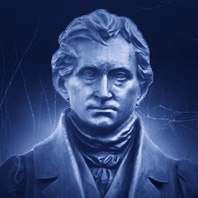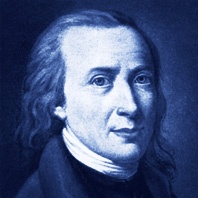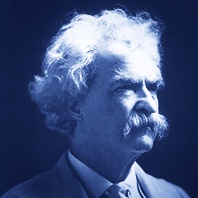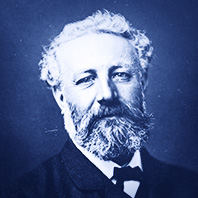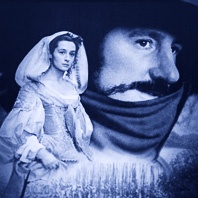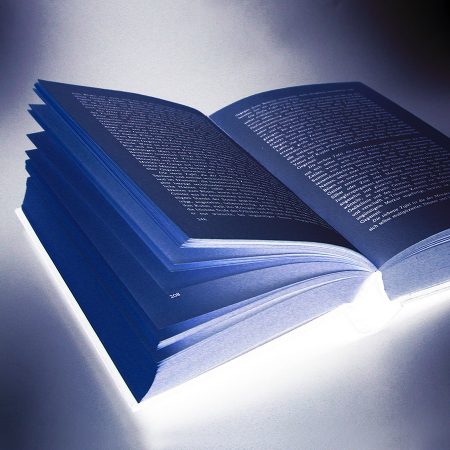Tag:
Literature
The German poet and novelist Joseph Freiherr von Eichendorff (1788–1857) counts among the foremost representatives of Romanticism. Many of his poems had been set to music and were sung.
Von Eichendorff, born in Ratibor (today Racibórz in Poland), studied originally law and worked in a variety of administrative civil service positions, up until he retired. Simultaneously, he devoted his time to his writing and publishing skills, until he died from pneumonia in 1857.
Read more
… this line from the poem “Evening Song” from 1778, by the poet Matthias Claudius (1740–1815), belongs to the best-known poems in German literature, not least of all because it was set to music many times; hence, it does not only remain in one’s memory because of its lyrics, but also because of its melody. Especially as a lullaby, everyone has surely heard it before or even sang it to the children:
Read more
There is a famous quote by the American writer Mark Twain (1835–1910), taken from his satirical travel guide »A Tramp Abroad«, published in 1880: »Everyone is a moon, and has a dark side which he never shows to anybody.« He alludes to the astronomical fact that the Moon only turns one side towards the Earth, due to its synchronous rotation. The reverse side of the Moon remains hidden to us when observed from Earth.
Read more
When the German author Michael Ende wrote »The Neverending Story« from 1977 to 1979, he created a milestone amongst the fantasy children and youth literature. The story about the shy boy Bastian Balthasar Bux on his adventure trip through the world of Fantastica, fascinated millions of readers of all age groups and has been translated into 40 languages up to date.
Read more
There is a German poem called “Dunkel war’s, der Mond schien helle“, in which the first line has been dedicated to the Moon and which boasts special features. For one thing, nobody knows who wrote the poem, which is quite unusual coming from the “land of poets and thinkers”. For another thing, it is based on the principle of the “oxymoron”. This is a figure of speech that juxtaposes elements that are contradictory or that are created from mutually exclusive terms. Straight away, the first line reveals this principle, because it cannot be “dark” when the Moon is shining “bright”.
Read more
It is fascinating how the French writer Jules Verne (1828–1905) envisaged the journey to the Moon 100 years in advance in his science fiction novels and was able to put it into words. Admittedly, he was quite taken with describing journeys to unimaginable places: from the deep sea (“20,000 Leagues Under the Sea”), via the circumnavigation of the Earth (“Around the World in 80 Days”) through to the interior of the Earth (“Journey to the Center of the Earth”). Of course, space had to be part of this and this is how Jules Verne firstly wrote the novel “From the Earth to the Moon” (»De la Terre à la Lune«, 1865) and then later the sequel “Around the Moon” (»Autour de la Lune«, 1870).
Read more
In his first solo album »The Dream of the Blue Turtle« from 1985, Sting published the Song »Moon over Bourbon Street«, which is not just about the Moon. He sings about the existence as a vampire, which he had turned into years ago, and which condemned him to follow passers-by in this street, in the moonlight and the pale lamplight …
It is characteristic for this song that it spares the bloody part of the crime and only leaves an indirect description. The word vampire is also not mentioned, however, it is clearly focused on, for example in the following line: »… you’ll never see my shade or hear the sound of my feet …«
Read more
»The Lion King« from 1994, is one of the most successful animated movies, and just like in other works from the house of Walt Disney (»The Lady and the Tramp« and others), we are able to gaze at the full moon up in the sky in nightly scenes.
Particularly well-known is the image, where Simba dances across a tree trunk with his companions, which enables them to cross a large river in front of the backdrop of a gigantic full moon. This motif has also been used for various movie posters and can also be watched in the movie trailer:
Read more
Matching to the moon festival, which has just been celebrated in Asia, we are looking to the Far East and are going far back in time to the year 700 A.D. Back then, the Tang Dynasty ruled China, a powerful dynasty that remained in power for almost 300 years. And there were two poets whose names are still well-known today, Li Bai (701–762) and Du Fu (712–770; see fictitious portrait opposite). Both created magnificent works. Li Bai was already a little older and hence a few years ahead, Du Fu had apparently surpassed his idol – this is what is being said amongst scholars.
Read more
Cyrano de Bergerac (1619–1655) was a French writer, who was less famous for his own pieces [*], but better known through the writings about him by Edmond Rostand (1868–1918) from 1897. The piece was called just like himself “Cyrano de Bergerac” and premiered as a stage play in Paris in the same year.
Up until today, it has been staged and filmed many times. The movie that is surely most famous is the one with Gerard Depardieu in the leading role from 1990. All dialogues are versified, which lends everything a historicizing but also an intense, poetic effect.
Read more
